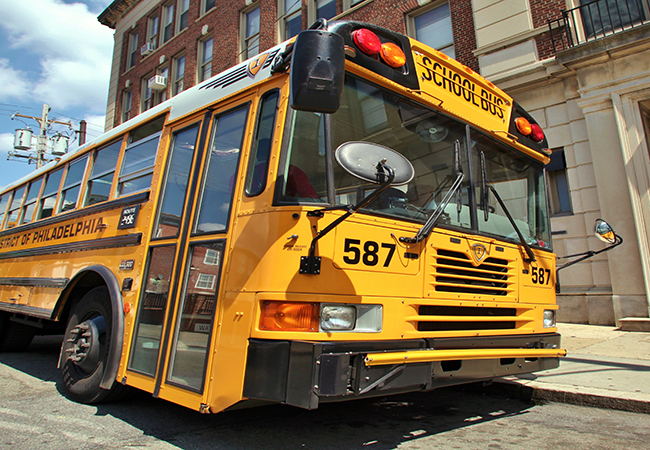New Ideas for a New School Year

That ringing bell means vacation is over and school is back.
The new year means a chance for teachers and administrators to explore new approaches in their schools and classrooms. Penn GSE’s Educator’s Playbook is full of ideas to try:
Students’ minds can drift in the classroom. Maybe they are still thinking about the beach. They are anxious in a new learning environment, or distracted by other things in life. A wandering mind can be reoriented to mindfulness through contemplative practices, which can improve students’ academic performance, as well as physical and mental health. Elizabeth Mackenzie offers tips for integrating contemplative practices into the classroom.
Teaching students to think like historians
Too often, students think of history class more like trivia. If they are focused on memorizing the year Fort Sumter was fired on, but don’t understand the events that brought about those cannon blasts, they are missing the critical thinking skills that make history class important. Abby Reisman shows how teachers can use texts differently to pick apart key events. (And Fort Sumter was fired on in 1861.)
Making the most of digital tools in your teaching
The ubiquity of technology in our lives defines the digital age. From smart boards to laptop computers, technology plays an integral role in learning environments. But sometimes educators fail to use technology to design a learning environment. Bobbi Kurshan offers a few ideas for educators to make better use of digital tools.
Helping high school athletes make the right college choice
For high school athletes, an offer to play sports in college represents the fulfillment of a lifelong dream. But for the vast majority of college athletes who won’t be playing in the NFL or making an Olympic team, college can’t just be about sports. What questions should athletes, their families, coaches, and counselors ask recruiters? How can athletes make sure they’re prepared for careers and life beyond the field? Shaun Harper made a checklist to help recruits.
Responding to anti-Muslim rhetoric
Islamophobia and anti-Muslim rhetoric have made waves in American politics, social media, and workplaces recently. Educators need to be ready to respond. Penn GSE’s Sigal Ben-Porath and Rutgers’ Thea Renda Abu El-Haj, a Penn GSE graduate, discuss how you can start classroom conversations focused on the reality of Muslim life in America and around the world.
The role of Augmented Reality in a lesson plan
At least some of your students probably spent time this summer playing Pokémon Go, so they’re already familiar with Augmented Reality. That means they’re ready for a lesson taught with AR. Susan Yoon offers ideas for bringing AR into both formal and informal learning environments.
Treating racial competence as a skill to be learned
Racism can have a disastrous impact on individuals and communities, which is why teaching racial competence as a skill to be learned and how race gets discussed in schools is so crucial. Ali Michael offers suggestions for talking about race honestly and effectively in your classroom.
